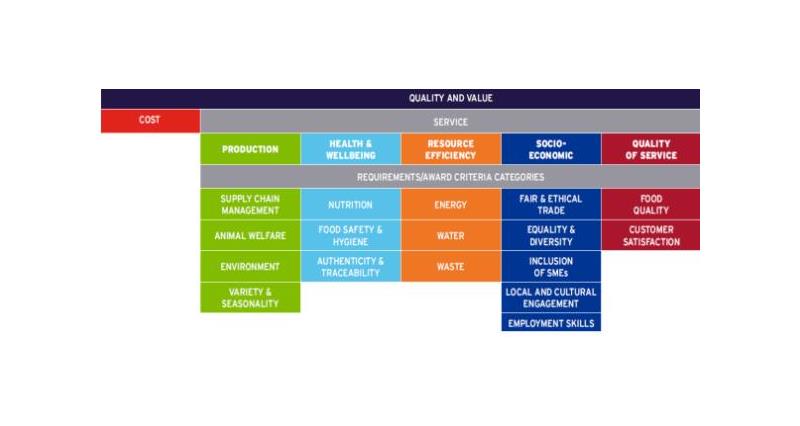The Food Marketplace will initially be suitable for farmers and growers that have a ready product, which they can deliver to catering outlets themselves, but there will potentially be buyers looking for raw ingredients as well as finished products.
The NFU has been working with Defra for some time to make the portal more user-friendly for smaller suppliers who are new to supplying the public sector, and to advocate the use of the portal in conjunction with the Balanced Scorecard (see below) for all public sector contracts.

What will the portal deliver?
While the portal is only a small part of the solution to allow more British food to enter the supply chain, it can be useful to farmers and growers who are looking to expand their market, and who haven’t previously considered supplying to the public sector.
The NFU Food Chain team has put together toolkits to help farmers and growers understand the basics of this complex supply chain. The Public Procurement Tool Kit and Food Service Tool Kit provide a basic overview of each sector, providing a basis for engagement locally.
The NFU is keen to help members make the most of the opportunities presented by the Food Marketplace – please email the food chain team with any queries.
Background
Defra began a project in 2015 to look at how food services were being procured. Procurement expert Dr Peter Bonfield, along with representatives from the food and farming industry, produced a Plan for Public Procurement.
This plan looked at how food could be better sourced by public sector caterers, while making sure cost was not the defining criteria. Since then, the government has made a manifesto commitment to procure one third of all food and catering services from small-medium enterprises in Britain, and recognised that contracts are complex for smaller businesses to be part of.
One of the key recommendations from the plan was the use of a Balanced Scorecard whereby procurers could offset the cost of food against the value it offers the wider supply chain.
